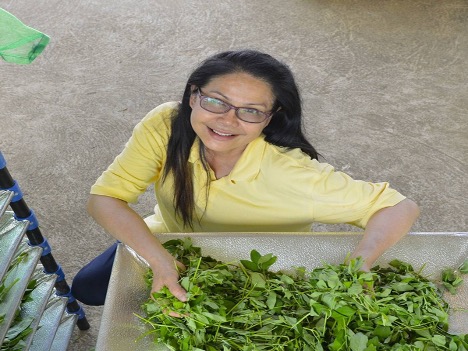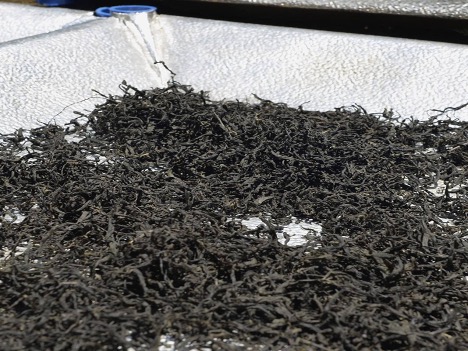
BY LEANDER C. DOMINGO
CORDON, Isabela (August 12, 2023)—The Multipurpose Solar-Powered Speed Drying Tray is a groundbreaking innovation that is transforming the way Thai tea or the “Chiang Mai” tea leaves are processed.
Adopting the use of this technology is the Amancio Nicolas Agri-Tourism Academy (Amancio) in Cordon town in Isabela province which has become an institution of sustainable agricultural practices.
According to the Department of Science and Technology (DoST) in Region 2 (Cagayan Valley), the Amancio has also now become a hub for aspiring farmers who desire to be horticulturists.
The DoST calls this ingenious device “Portasol,” which not only enhances the quality of Chiang Mai tea but also aligns perfectly with Amancio’s core values of environmental stewardship and self-sufficiency.
Noemi Lianco, owner of the Amancio, is currently completing her PhD in Tourism Management at the Maejo University in Chiang Mai Province in Thailand.
It was in Thailand where she learned about the Thai tea leaves which have been renowned for their unique flavor, aroma and vibrant color, captivating tea enthusiasts worldwide.
“It requires a lot of skills to cultivate these precious Thai tea leaves, as well as knowledge and patience,” she said.
In former times, it was a time-consuming process for the Thais to sun-dry these tea leaves. The Thais and other tea producers elsewhere heavily relied so much on weather conditions only to come up with not-so-good quality products.

But with the increasing demand for premium tea, innovators worldwide have come up with different technologies to meet the needs of the environmentally as well as health-conscious market.
In the Philippines, the DoST in Region 2, in collaboration with the Inventors Society Producers Cooperative (FISCPC), came up with a solution.
Solar energy
FISCPC President Popoy Pagayon invented the “Portasol” drying technology that helped farmers dry their produce and at the same time reduced postharvest losses.
The DoST said the Portasol tray, which was designed with ingenuity and sustainability in mind, features a sleek design equipped with several holes to filter extracts from certain commodities.
It said the tray efficiently harnesses the sun’s energy, providing a renewable and eco-friendly heat source for drying the Thai tea leaves proven by the technology’s use at the Amancio.
As a science and technology innovative tray, it is equipped with intelligent temperature and humidity control that ensures the leaves are dried uniformly without losing their essential oils and flavors.
According to the DoST, the tray’s multipurpose design allows it to be adjusted for different crops and produce, making it also a versatile tool at Amancio.
Students from the Nueva Vizcaya State University and Quirino State University in Region 2 and the Apayao State College in the Cordillera region are sent to Amancio to learn about the technology that has been integrated into Amancio’s curriculum.
Liangco plans to make the Amancio an agritourism academy, an ideal hub for imparting agricultural expertise to the next generation of farmers and agriculturists.
The DoST statement said the students gain hands-on experience with the technology, expanding their knowledge of renewable energy applications and modern agricultural practices: “It empowers the students with the necessary skills to drive change in the sector.”
The adoption of this Portasol technology by Amancio is considered a step toward a greener and more sustainable future and exemplifies how agri-tourism can lead the way in responsible agriculture, environmental preservation and economic viability, the DoST added.
According to the DoST, this innovative technology has been gaining recognition due to its potential to revolutionize not just the tea industry but the entire agriculture sector.
